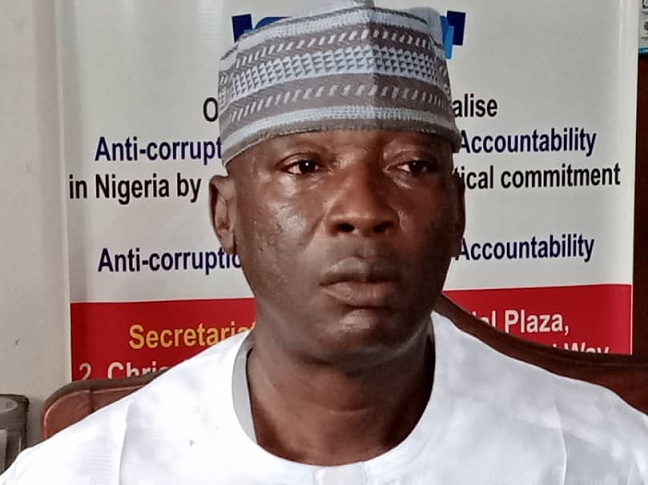When the first two parts of this article series were published, I was not prepared for the flood of responses—pain-filled, truth-laced, and overwhelmingly urgent. They came from far and near, from indigenes and non-indigenes alike, all echoing one resounding theme: The fall of Igala political power is a national metaphor for how once-mighty communities crumble in the absence of unity, strategy, and visionary leadership.
One reader wrote:
“When I read your article, I cried helplessly for my Igala people. And I asked myself, where did we go wrong?”
Another, from Benue State, noted with a heavy heart:
“I am not an Igala man, neither do I have any relation with them, but I’m speaking from Benue State as a majority. It hurts to see a land you fight to liberate being ruled by the minority. We here in Benue can’t be beggars—not in our own land. I hope the Igalas learn from this.” A statesman in Bassa Land called me and uttered this statement too.
These aren’t just sentiments. They are indictments. They are alarms.
Another concerned reader, Dr. James Akpa from Abuja, called my article:
“An excellent and educative piece—a timely warning to Igala destroyers and distractors. God will fish them out soon, and the unity of Igala will be celebrated to give room for growth and development of our land.”
Yet another wrote:
“Thanks for your concern on the political situation of Igalaland. It is disheartening what is going on, that those once perceived as mighty have fallen. This is a call for unity of purpose ahead of 2027.”
How did a people once hailed as kings become beggars, political spectators in a land they once dominated? The answer is as bitter as it is obvious: disunity, betrayal, political shortsightedness, and a failure to understand the game of modern governance. The Igala elite, once custodians of leadership, now scramble for crumbs on the table of those they once led.
Take a moment to consider what a statesman in Bassa Kingdom has to say, “Bassa people are like the cow’s tail—small, inseparable, and incredibly useful. To neglect them in any Igala political recalibration is to repeat history’s mistakes. They must be included not only as followers but also as stakeholders and policymakers.” Our salvation will not come from isolation but from inter-ethnic inclusion and grassroots revival.
And what about Okura State? The dream of an Igala-dominated state must not die. We must not allow any inch of our ancestral soil to be given away like Bakassi Peninsula, silently and permanently. Our political will must be as resolute as our cultural pride.
Let us learn from Benue State—our neighbors, who, though diverse, have mastered the art of consensus. More importantly, let us study and decode the Tinubu Mafian style of leadership—a blend of deep-rooted political engineering, strategic alliances, and ruthless pragmatism. Whether you like him or not, President Tinubu has proven that power is never given—it is taken, negotiated, engineered, and preserved.
He built bridges across tribes and tongues, recycled political enemies into allies, and understood the power of timing and silence. Governor Yahaya Bello learned from this template and used it to mock and dismantle Igala unity. While our leaders bickered, defected, and plotted for crumbs, Yahaya Bello built a power structure so resilient it outlasted elections and revolts.
Some of our Igala leaders are dodging EFCC probes by using politics as a hiding place. Others are paid agents, planted to divide the Igala vote, sabotage consensus, and ridicule every attempt at collective bargaining. Politics has become both a shield and a sword for opportunists. And as long as our political activism is driven by self-preservation, we will remain political beggars in our own land.
Let’s be clear: 2027 is not just another election—it is a battleground of destiny.
The Igala must go back to the drawing board and shed the cloak of pride. We must rethink strategy, not slogans. We must build coalitions, not camps. We must resurrect forgotten festivals like Italo, rebrand them as civic platforms—not mere rituals—but as forums for free speech, reconciliation, and national rebirth. Academic Professors and Religious leaders must stop dancing to the drums of politicians. They must speak truth to power, unite the people, and birth a moral revolution. Faith, when diluted with fear, becomes noise. But when grounded in vision, it becomes fire.
There’s a need to raise and groom young Igala leaders, not just for popularity but for purpose. The current political stage is crowded with exhausted gladiators who see governance as an ATM, not a sacred duty. We need principled, educated, bold, and ethical young minds to reclaim our destiny.
One comment captures the desperation of our moment:
“Our former governors are now begging for akara in their own land. Too bad.”
It is not just bad; it is tragic. It is not just shameful; it is instructive.
Let this be a warning to future leaders: If you betray your people for personal gain, history will not only expose you—it will disgrace you. The future belongs to those who unite, not to those who divide. To those who lead, not those who loot. To those who empower, not those who exploit.
We must remember: The lion is still the king of the jungle, even when wounded. The Igala nation may be down, but we are not out. Let the pain of our fall become the fuel for our rise. Let the shame of our present birth the glory of our future. Let the political insults of today become the songs of our triumph tomorrow.
The final choice is ours: Remain kings who learn, organize, and reclaim—or stay beggars who divide, gossip, and perish.
– Inah Boniface Ocholi writes from Ayah – Igalamela/Odolu LGA, Kogi state.
08152094428 (SMS Only)




